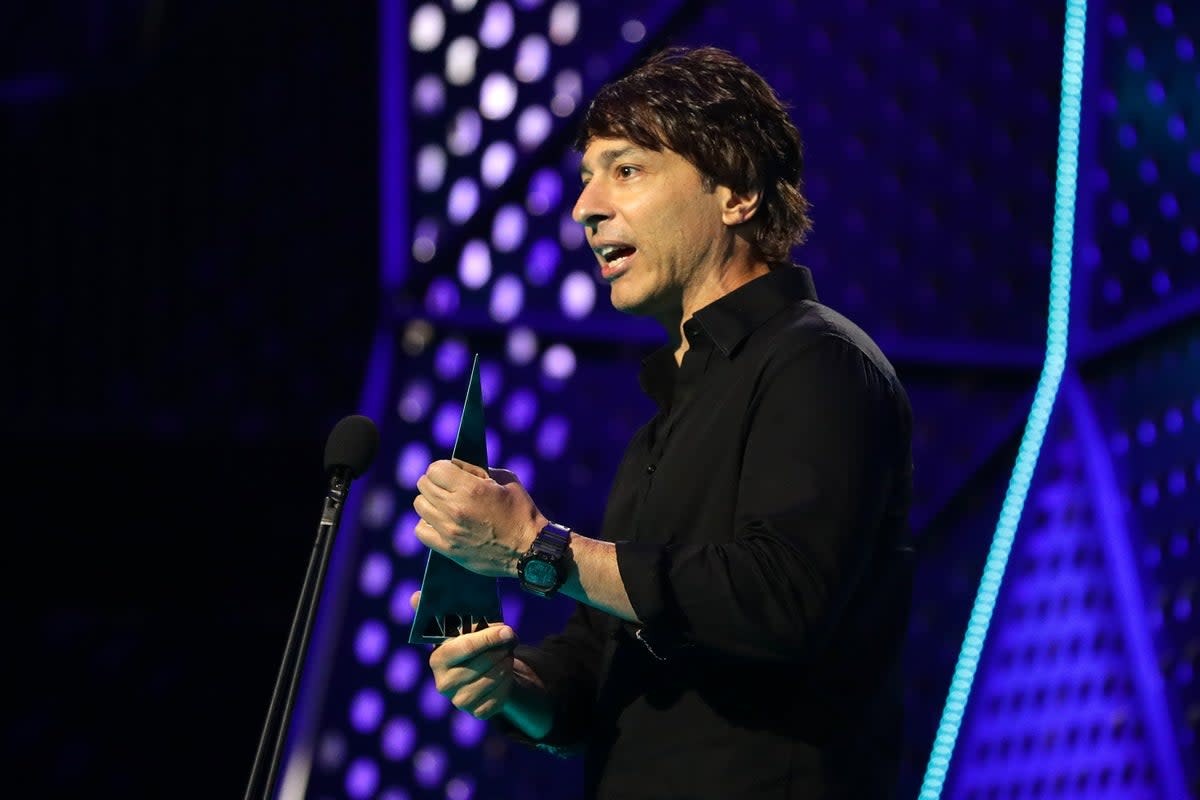Voices: Heard the one about the woman kicked out of a comedy club for breastfeeding?

I don’t know if the woman who was asked to leave American stand-up comic Arj Barker’s set in Melbourne last week was a first-time mother, but her story of being ejected from a show with a child in tow brought a long-buried and uncomfortable memory rushing back.
When my eldest daughter was just a few weeks old, my husband and I took her out for a walk in the pram on a sunny late summer day. Along the way, we stopped at a cafe that we’d frequently visited as a couple, just the two of us. After a coffee and cake, while the baby slept, we chatted about how lucky we were to be living in London, able to continue doing all the things we used to do – as if we didn’t have a baby at all.
Hollow laughs all round: five minutes later, the baby had a blowout nappy and I went to the bathrooms to change her. I then discovered that the toilets, which I hadn’t previously registered at all, were in fact tiny, filthy concrete squares with no baby changing facilities. I was forced to lay my coat down on the floor tiles and change my tiny baby right down to her newborn skin in this fetid, freezing box. I realised in that moment that my life was changing faster than I had noticed. Even the most innocuous coffee shops were now out of bounds. I no longer belonged where I used to exist; I would have to find a new habitat if I wanted to survive.
There has been much hand-wringing about the incident in Australia. And the male comedian and the mum apparently have very different views about what happened. She says her tiny baby, cuddled on her lap, was making very little noise – much less than a coughing adult – and in being asked to leave the venue, she felt publicly “humiliated”.
Meanwhile, Barker says he was “acting on behalf of the other 700 or so ”. “I made a difficult decision,” he said in a post on Instagram. “I want to be very clear that this was a very tough call ... audience members who deserved to see the show they had pain for, uninterrupted.”
In my opinion, neither are truly right or wrong, and this isn’t really a story about breastfeeding – except that it is. Because as a breastfeeding mother, for at least the first nine months of your child’s life and often much longer, you have zero autonomy or individual identity. Absolutely none. Wherever you go, the child must follow – and there are many places you regularly go as an adult where a child cannot follow. One of those is a comedy show. It’s not the ideal location for a small baby, but then so few places are.
That’s because arguably the biggest shock of new motherhood is realising how geographically restricted you are. Whereas before giving birth, your average week might be mapped out over the widest stretches of a city – or roam the roads of an entire county – suddenly, you’re stuck to the same few streets: the children’s centre, the library, the health visitor’s clinic, a friend’s house, your own lounge, your own bedroom. Overnight, life becomes very small.
For a breastfeeding parent, that adjustment is even harder to swallow, because it’s harder to take a day away, to just for a moment step back into your old life and inhibit the physical world that was once yours. Every aspect of your daily life is now shaped around the needs and demands of the child. Every single day.
I had my second child in 2020. Among friends and family, there were concerns about my mental health. After facing induced labour alone, how would I then cope with the isolation of life with a newborn in the middle of a global pandemic? Yet there was nothing easier than being stuck at home while every other adult was in exactly the same position. To have a new child and not feel forced out of adult society, which was now being conducted primarily on Zoom anyway, was a joy by comparison.
Much is explained by doctors and parenting experts about the benefits of breastfeeding, for the health and wellbeing of both child and mother, but in an effort to boost our low national breastfeeding rates, we don’t speak loudly and clearly enough about the sacrifices that birthing mothers make in the months afterwards.
We ask them to shrink themselves – physically, creatively, geographically – and to do so with great joy at the prospect.
Sometimes it just gets too much and we need to be somewhere that connects us to our old selves, our true selves, which are on hiatus for a little while. When we do that, the results can be confronting. We’re changing a nappy on concrete. We’re being thrown out of a comedy club.


